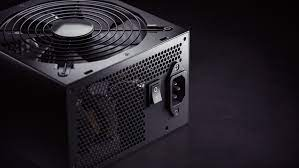Powering Your PC Unveiling the Importance of PC Power Supplies

When it comes to building or upgrading your PC, one component often overlooked is the power supply unit (PSU). In this article, we'll explore the crucial role PC power supplies play in your system's performance and stability.
The Heart of Your PC: Power Supplies Explained
Your PSU is more than just a box that delivers electricity to your PC. It determines the reliability and efficiency of your entire system. Here's why it matters:
1. Wattage and Compatibility
Choosing the right wattage is essential to ensure your PSU can handle your PC's components. A PSU with insufficient wattage can lead to instability and crashes.
2. Efficiency and Energy Savings
Higher efficiency PSUs waste less energy as heat, saving you money on electricity bills and reducing environmental impact.
3. Voltage Regulation
A quality PSU maintains stable voltage outputs, preventing voltage spikes or drops that can damage your components.
4. Cable Management
Modular PSUs offer better cable management, reducing clutter and improving airflow for a cooler and cleaner PC.
Gaming and High-Performance PCs
For gamers and users with high-performance PCs, investing in a robust PSU is crucial. These systems demand more power, so consider:
1. GPU Power
Power-hungry graphics cards require dedicated PCIe connectors and sufficient wattage to perform at their best.
2. Overclocking
If you plan to overclock your CPU or GPU, ensure your PSU can provide the extra power required without straining.
Future-Proofing
Choosing a PSU with some headroom can future-proof your system. This way, you'll be ready for upgrades without worrying about replacing your PSU.
Conclusion
Your PC's power supply unit is the unsung hero that ensures your system runs reliably and efficiently. Don't skimp on this crucial component when building or upgrading your PC. Invest in a quality PSU that meets your power needs and provides the stability required for a seamless computing experience.

- Art
- Causes
- Best Offers
- Crafts
- Dance
- Drinks
- Film
- Fitness
- Food
- Games
- Festival
- Gardening
- Health
- Home
- Literature
- Music
- Networking
- Other
- Party
- Religion
- Shopping
- Sports
- Theater
- Wellness



